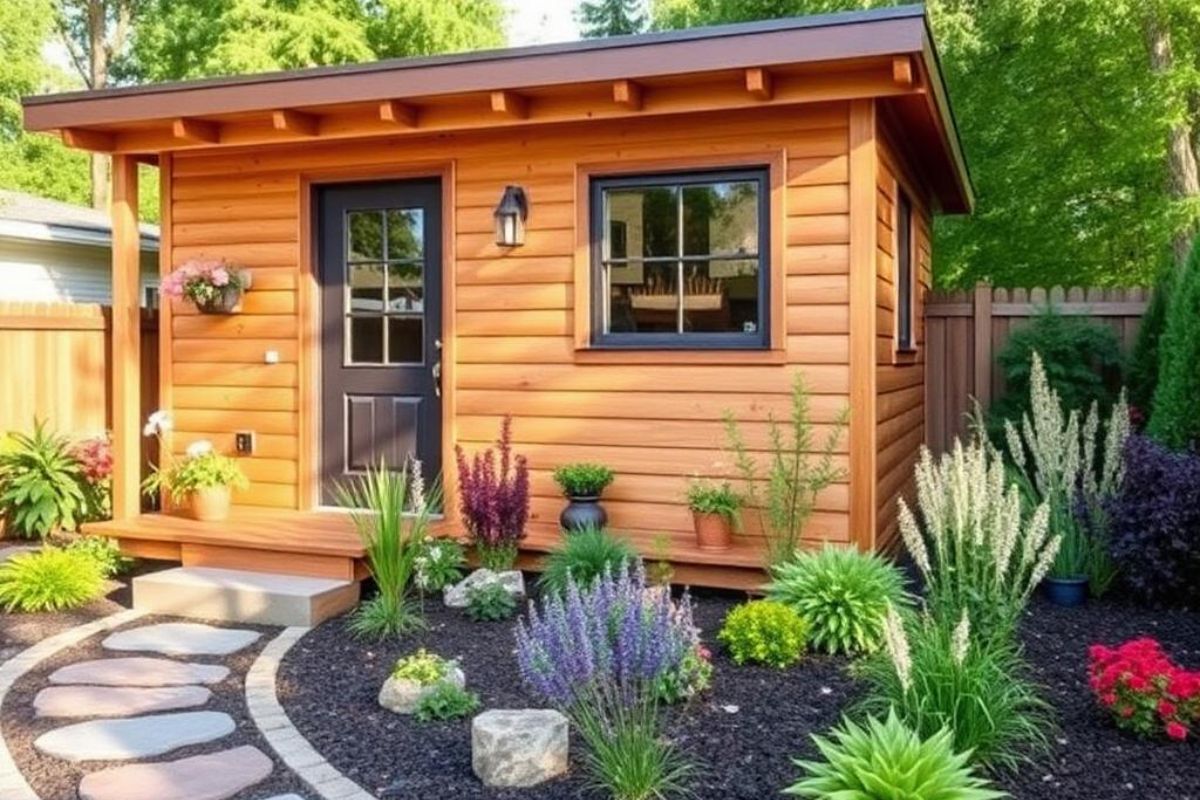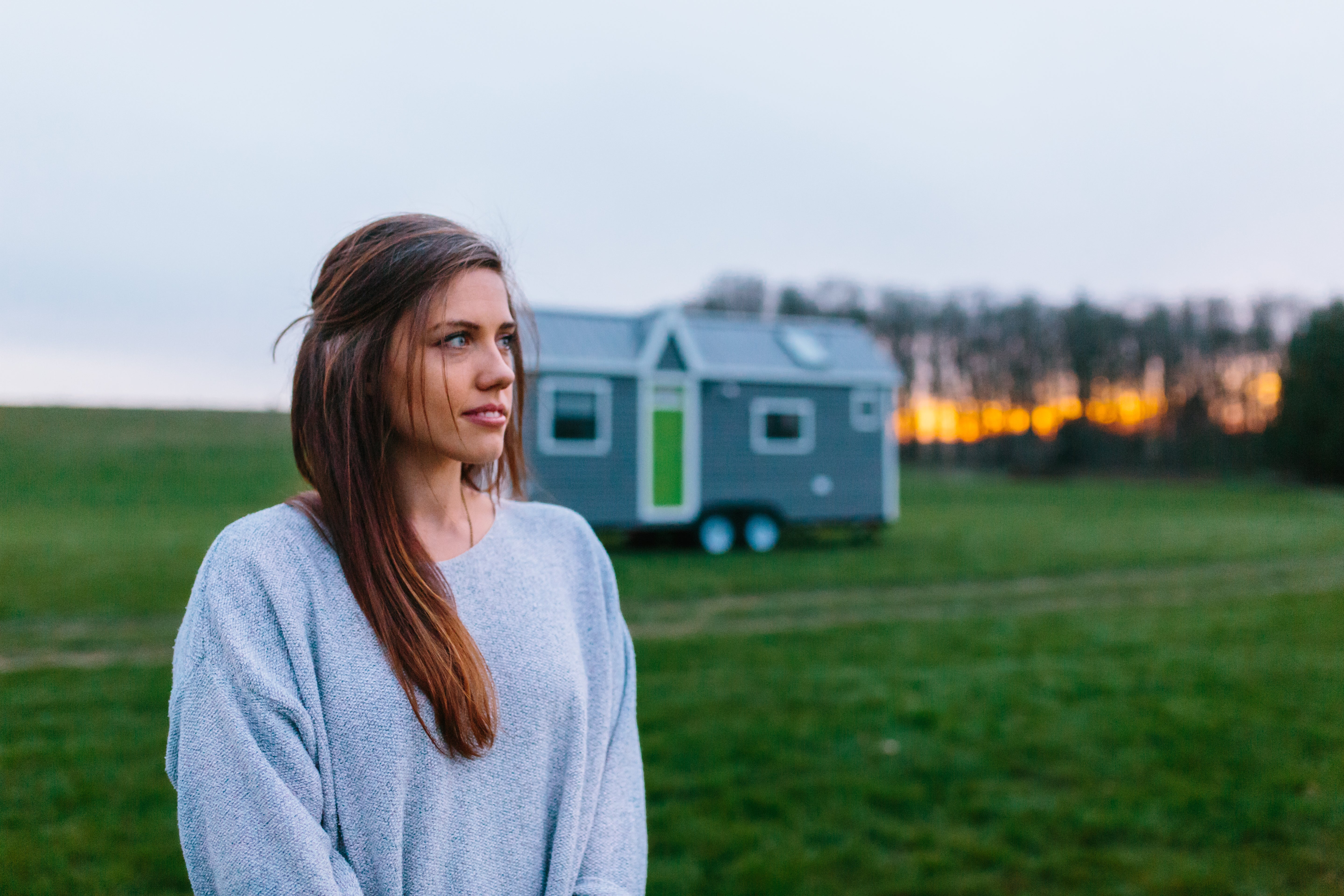So you’ve picked the perfect tiny house plan…
It’s modern. Efficient. Maybe there’s a sleeping loft or a cedar-clad porch that makes you smile every time you look at it. You’re ready to roll—literally or metaphorically—and you’ve got the Pinterest board to prove it.
But before a single screw hits the frame, there’s something far less exciting (but wildly important) waiting for you: paperwork. Permits, zoning regulations, and financial documents. You know, the fine print most people skip... until it bites back.
This guide is here to help make sure you don’t miss what most first-time builders do.
The Hidden Price Tag: Final Costs and Closing Confusion
Let’s say you’ve found land—conveniently located, good soil, not too remote. You’re pumped. But land deals are a little different from buying an existing house. Fees sneak in from every direction: inspections, escrow, surveyors, and more.
Then comes the paperwork that really makes people blink: final costs during closing. These are the deal-sealers, and they matter whether you’re buying a half-acre for your tiny home or a fixer-upper cabin.
Permits: More Than Just Red Tape
Permits often feel like a bureaucratic hoop-jumping game. But in reality, they’re the only thing standing between you and a costly stop-work order.
Here's where things get tricky: different counties, cities, and even subdivisions have wildly different rules. Some places have embraced tiny home living with open arms. Others are still figuring it out—or worse, still fighting it.
Common hiccups include:
-
Minimum square footage requirements
-
Utility connection standards
-
Rules about permanent vs. movable homes (on wheels)
-
Septic or well approval delays
It’s not uncommon for someone to start building a tiny home only to discover that the zoning board considers it an “accessory dwelling unit” that can’t legally stand alone.
So do the unglamorous thing first: check with your city or county planning department before laying a single foundation block.

Surprise! Your HOA Might Have Opinions
Even if your local government says “go for it,” your neighborhood might say “not so fast.”
Homeowners’ associations (HOAs) are infamous for laying down rules that can surprise even seasoned homeowners. And while they’re often associated with big suburban neighborhoods, don’t assume you’re free just because you’re building on a quiet road.
Here are a few things HOAs might regulate:
-
Exterior finishes or colors
-
Roof pitch
-
Size or height restrictions
-
Parking arrangements
-
Outbuildings, compost setups, fences—even your mailbox
If your build-ready lot falls under a community with an HOA—even a small one—get a copy of their rules before buying. Seriously. It can make or break your project.

Know Your Paper Trail: What to Ask For When Buying Land
You’ve probably already been told to “get it in writing.” That advice goes double for land sales. When buying property for your tiny home, ask for:
-
Recent survey documentation (don’t rely on old maps)
-
Utility access verification: water, sewer, electricity
-
Title insurance and deed restrictions
-
Any HOA guidelines (as mentioned above)
-
Soil tests (especially if you’re installing a septic tank)
If a seller hesitates to provide this info, that’s a red flag. A beautiful, grassy lot doesn’t guarantee you can build on it.
When to Call in a Real Estate Pro
You’re self-reliant. That’s part of why the tiny house lifestyle appeals to you. But even the most independent builders know there are times to ask for help.
A real estate agent—especially one familiar with alternative builds—can offer more than just listings. They can interpret zoning maps, explain easements, and flag land that looks good on paper but spells trouble in reality.
Yes, it’s an extra step. But so is fixing a mistake that costs thousands in wasted work.

Partnering with the Right Professionals for Long-Term Success
Beyond the initial land search, a knowledgeable real estate professional can be a valuable ally throughout your tiny house journey. Once you've identified a potential plot, the process doesn't stop at purchase.
In fact, that's when many of the more complex decisions begin. A seasoned agent can guide you through site assessments, recommend trusted surveyors and contractors, and help you understand county-level requirements that could make or break your plans.
Not all parcels of land are created equal—some have hidden challenges like poor drainage, outdated utilities, or legal complications tied to access roads or right-of-way agreements. These are the kinds of issues that can quietly derail your timeline or budget if left unchecked.
Additionally, if you plan to finance your purchase, an agent with experience in non-traditional builds can direct you to lenders who are more open to financing tiny homes or land purchases for off-grid living. This can make a huge difference, especially in regions where conventional mortgages aren't an option.
They can also assist with navigating property appraisals and title transfers, ensuring you’re not caught off guard by last-minute red tape. And should you ever want to sell or relocate in the future, that same agent can be a resource again—connecting you with buyers who value the unique lifestyle you’ve embraced.
At the end of the day, embracing a minimalist or alternative living style doesn’t mean you have to go it alone. Leaning on the right professionals at key moments can empower you to move forward with clarity and confidence—protecting your investment, avoiding costly missteps, and allowing you to focus on what truly matters: building the life you envision, one square foot at a time.
Closing Thoughts
Building your tiny home is exciting, liberating, and deeply personal—but it also demands patience with paperwork. You don’t need to become an expert in zoning codes or escrow law, but you do need to know enough to avoid common traps. From sneaky HOA guidelines to the final costs during closing, it's better to ask every question now than regret it later.
The tiny house lifestyle is all about intention. And that starts with how you begin.





Share: